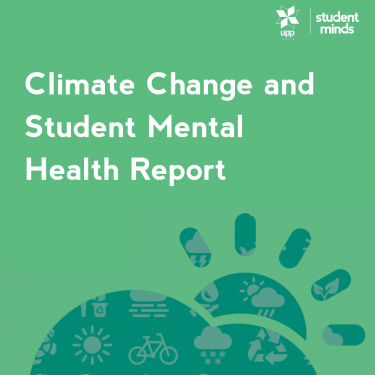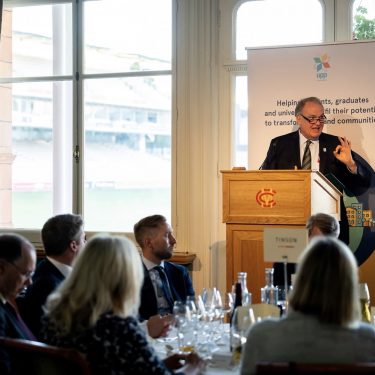The genesis of the civic university
This is an edited version of the authors’ essay on the global civic university in Laying the Foundations, first published in June 2016.
The University of Nottingham was formally constituted by Royal Charter in 1948 – with formal university status granted to an institution founded as a civic college in the city in 1881. In 1928 its future was reimagined, following a gift of land on what is now University Park by local business leader, philanthropist and educational visionary, Sir Jesse Boot. As such, its chronology in the context of the development of the great UK ‘civic universities’ falls somewhere between the original set of ‘redbrick universities’ and the Robbins Report-era of 1960’s ‘plate glass’ universities.
The founding principles of these universities all incorporated a strong civic commitment to the betterment of the real-world skills and knowledge-base of the communities and cities in which they were embedded. The University of Nottingham continues to act in accordance with the strong civic principles that shaped our creation, and continue to help shape our future.

School pupils taking part in the University of Nottingham’s cultural outreach programme
However, at the same time – many of the UK’s leading universities also have a deep heritage in thinking internationally. Our academic and student communities have, for decades, been at the forefront of building international relationships, global cosmopolitanism and cultural exchange. The free flow of ideas is untroubled by national borders; nations are not the natural unit of analysis when our institutions think about research collaboration, teaching and scholarship. In short, we also behave like global institutions.
Higher education in the UK has experienced dramatic expansion over the past couple of decades, during a period of unprecedented technological change and globalisation. At the same time, because of their experience in cross-cultural navigation, collaborative instincts and drive to promote mutual understanding, universities have surfed the waves of globalisation more effectively than most others. We have even helped make some of them.
However, there has been an inevitable tension between these two core characteristics of leading UK universities. We look to attract talent from all over the world, conduct research aimed at solving global challenges and devote significant resources and a strategic premium to internationalisation. This has led, in some cases, to a perception that there has been a drift in focus away from civic engagement, especially by some research intensive universities over the past couple of decades. This space has, in some cases, been filled by the post-92 institutions, whose focus on applied and contract research and more localised patterns of recruitment may be more obviously in alignment with the immediate priorities of local policymakers.
Regional economic policy: renewing the UK civic university?
Leading research-intensive civic universities, and in particular those in the great British industrial cities of the midlands and the north, have been increasingly influential at local and regional level over recent years. This has come about via a realisation by policymakers in large metropolitan areas and universities themselves, where their role as engines for economic growth, providers of stable employment magnets for inward-investment and developers of skills is something of mutual benefit and worth investing more time and cooperation to pursue.
Over the last few decades, sub-national economic development policy in England has changed its focus from city-regions, to regions, back to city-regions again – and now, the super regions of the Northern Powerhouse, the Midlands Engine and Anywhere An Hour’s Drive Away From London. All in the search for the perfectly aligned functional economic area. It could be argued that this perpetual game of economic development Tetris over the years has created, in some places, a few areas of actual alignment. This has then inspired more habitual collaboration, with a key example being the Northern Powerhouse, being underpinned by the 2014 devolution of powers to the Greater Manchester Combined Authority (GCMA), which in turn was formed of 10 metropolitan boroughs that formed the Manchester City Region, which before that had been cooperating for well over a decade via various acts and area agreements.
In 2010, the Coalition Government’s ‘bonfire of the quangos’ abolished Regional Development Agencies and replaced these with Local Enterprise Partnerships, which was accompanied by austerity measures that hit local authorities hard. This hollowing-out of resources and power structures at the sub-national level meant that universities were asked to play a greater role as thought-leaders, conveners and in some cases – to provide resources such as research, analysis and intelligence that helped fill the vacuum of these lost functions. Similarly, universities are true ‘anchor institutions’ (i.e. there’s little danger of us outsourcing or relocating from an urban area), and provide significant stabilising effects to local and regional economies. For example, over the years of the most recent UK recession, The University of Nottingham was able to sustain a 13% growth in our workforce, across different job families, compared to a 0% average in jobs for the east midlands.
Austerity also led to a growing realisation amongst the higher education sector that, in a tough funding environment, universities had to justify the contribution they made to the UK in a more effective, policymaker-friendly fashion. The flurry of university economic impact studies published since 2010 is testament to the extent to which universities decided to focus their enunciation of this contribution on the role they play in local and regional economic growth.
Global flows of talent – the heart of the 21st century civic university
The economic theory and policy reality looming large behind all of the aforementioned innovation ecosystems is that ‘human capital’ is now pre-eminent as the driver of future growth and prosperity. Quite simply, nations, cities, businesses, universities and societies are all prioritising ‘talent’.
Talent, resources and opportunities are increasingly clustered within urban areas – with these agglomeration effects creating what Richard Florida has termed ‘spiky worlds’, where cities are superseding nations on many indicators, resulting in extreme concentrations (or ‘spikes’) of innovation resources within them.
Communities and cities are therefore having to think global. But they’re not used to this, let alone acting globally. This is where leading universities with their global super connectivity are natural, but generally under-leveraged, leaders.
The introduction of regional competition for investment and business location to drive agglomeration is increasingly important. And as Sir Andrew Witty stressed in his ‘Universities and Economic Growth’ report to the Government, universities are incredibly important to agglomeration. They are key to talent development, research and innovation, and building social capital.
Universities are also central to brain circulation: ‘Migrants may initially take with them skills and capital; yet, ideas and capital may flow back (and in larger amounts) as long as migrants maintain diaspora-type social and cultural ties to the home country. Remittances represent one of the most studied phenomena, allowing households in developing countries to invest in education as well as consumption.’ (source)
This migration of ideas, exposure to a diversity of cultures, bringing the best and brightest to Nottingham and the UK – but also back again – is truly the definition of a global civic university. Having institutions which are comfortable as well as adept at forming bridges amplify the economic and social contributions which universities like Nottingham can and will make in our increasingly spiky world.







